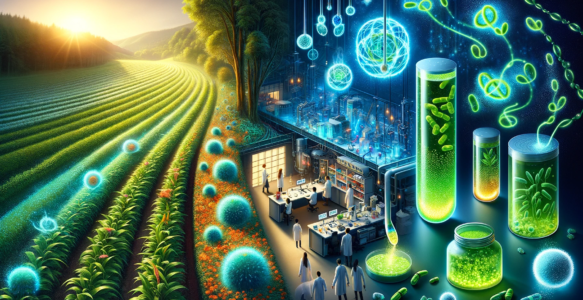At Biomimicry NZ, we are dedicated to exploring innovative research that leverages the wisdom of the natural world to tackle modern challenges. Advances in synthetic biology offer enlightening insights into how we can emulate nature to enhance both our environment and human activity.
We are all aware that modern human reliance on plastic products has become a global issue, coming at the cost of environmental pollution. The staggering amount of plastic produced annually—over 350 million tons—is alarming. In response, nature itself has suggested a potential solution: over 400 species of fungi and bacteria have evolved the ability to degrade plastic. Inspired by this natural process, we can use synthetic biology to enhance these microbes, making them more effective at handling plastic waste. This reduces environmental pollution and paves the way for new methods of plastic recycling. For instance, researchers at the Wyss Institute at Harvard University are using synthetic biology to tackle environmental challenges, developing “supercharged” microbes that could significantly speed up this process, offering a hopeful solution to plastic pollution.
In agriculture, the reliance on synthetic fertilizers poses significant environmental risks. Synthetic biology shows great potential in this field. The Wyss Institute’s startup, Kula Bio, is pioneering a method of using engineered microbes to deliver nitrogen directly to plants. This innovation supports healthier crop growth and reduces the environmental impact associated with traditional fertilizers. In the fight against climate change, Wyss startup Circe Bioscience is utilizing microbes to convert greenhouse gases into valuable products, such as fats and oils that can be used in food production. These products mimic cocoa butter and palm oil, marking a significant step toward decarbonizing food production.


Left: Kula Bio, part of Harvard University's Wyss Institute, is developing enhanced microorganisms that can directly provide nutrients to plants to reduce reliance on harmful synthetic fertilizers Right: Circe Bioscience, a lipids company at Harvard University's Wyss Institute, is developing vitamins to convert greenhouse gases and produce low-fat and oily products that can have the properties of fats and palm oils.
As we undertake these groundbreaking studies, ethical considerations are indispensable. We must carefully assess the potential risks and long-term impacts of these technologies to ensure that scientific advancement harmoniously coexists with nature and humanity—a goal and effort shared by all scientists.
At Biomimicry NZ, we encourage interdisciplinary collaboration and knowledge sharing to promote the development of such technologies. By mimicking natural processes and mechanisms, we can develop innovative solutions to the world’s most pressing problems. The solutions found in nature reflect its intelligence and demonstrate the sustainable development goals achievable through scientific collaboration. We look forward to continuing to explore and realize these potentials with researchers and innovators around the globe.


